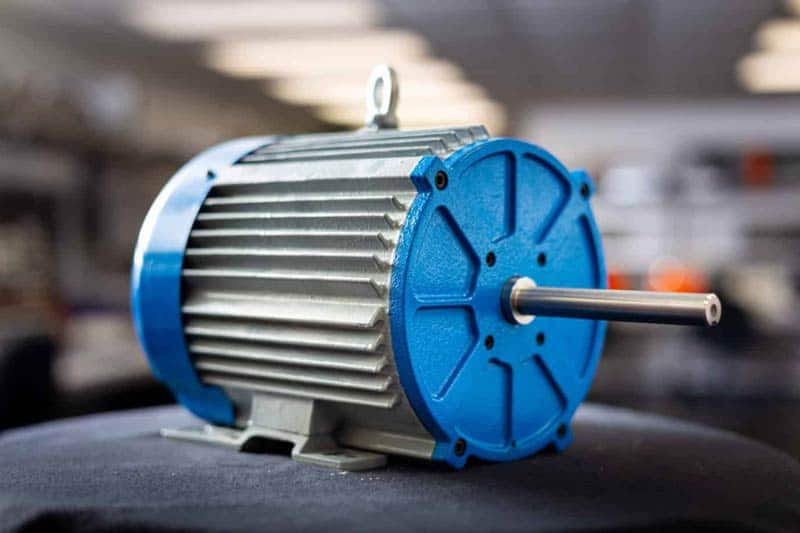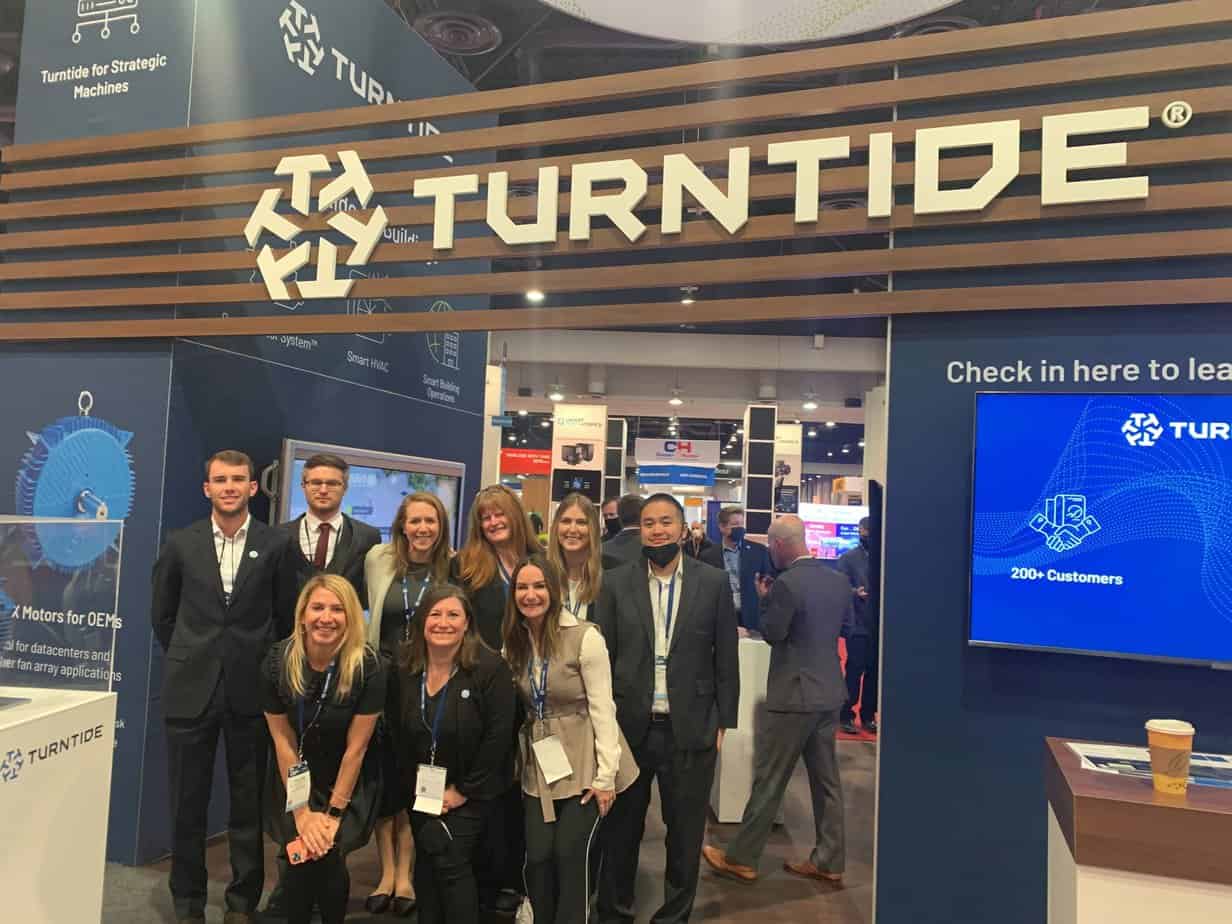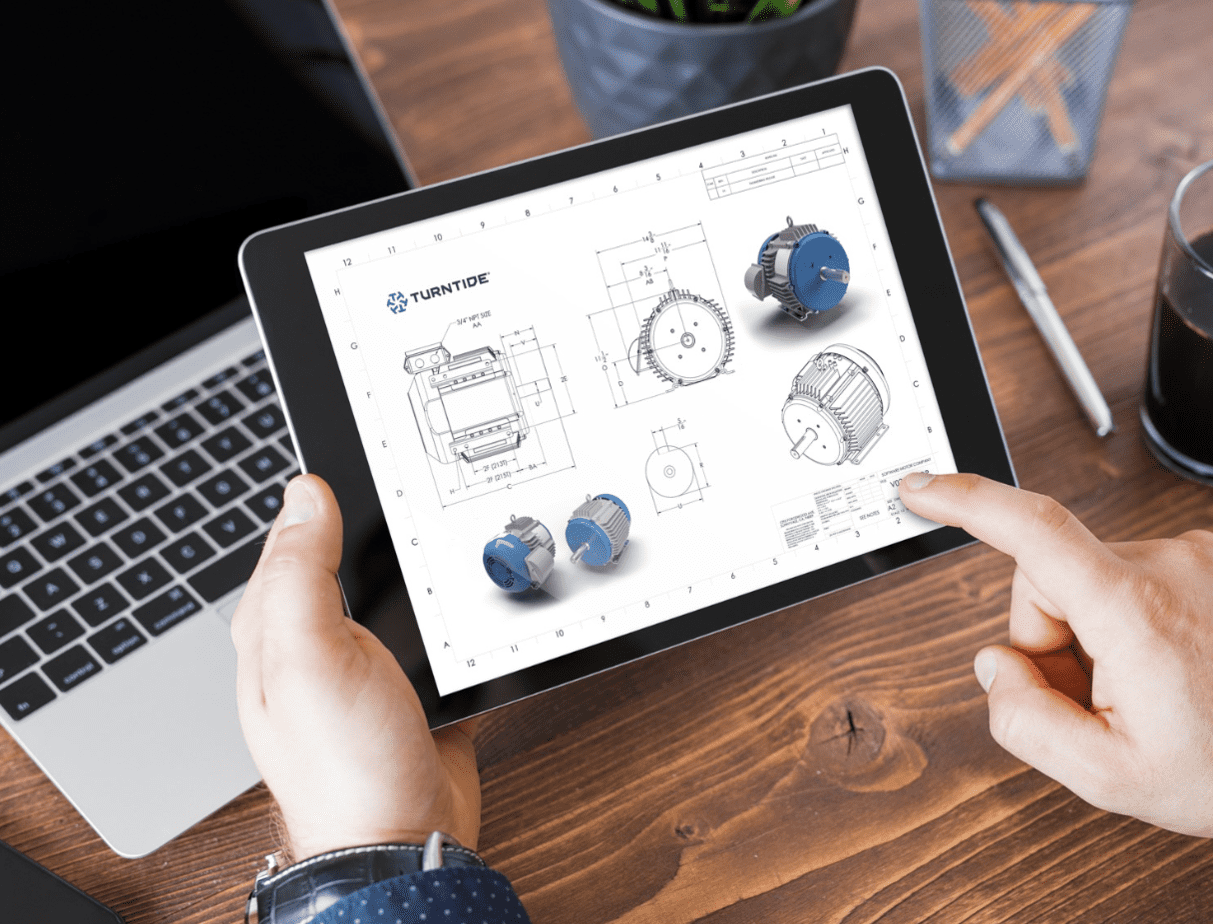Engineers have driven humanity’s rapid technological transformation, accelerating everything from transportation to digital transformation. Now, thanks to evolving global priorities, engineers have their sights on the greatest challenge of our time: climate change.
Money is flowing into sustainability at a rapid pace, with tens of billions of dollars invested in climate tech startups each year.
And investment isn’t slowing down. In a recent interview for Turntide’s upcoming Net Zero Action Heroes podcast, Greg Smithies, who co-leads the Climate Tech Investment team at Fifth Wall, warned that we could multiply the annual investment rate 100 times over by 2050 and still fail to hit global climate goals.
Thanks to this dynamic, climate tech has evolved into an exciting field where innovative problem-solvers can create something new and leave a positive mark on the world. When your mission is to stop climate change, you can’t afford to stand still. New ideas are critical for the health of our planet.
Turntide is looking for engineers to help us optimize how humanity uses energy. Whether you’re a seasoned engineer or a recent graduate, specializing in sustainability provides unique opportunities to learn and grow.
See engineering job opportunities
Meet a few members of our engineering team: mechanical engineer Chelsea Jann, automotive test engineer Matthew Lamb, and software engineer Mark Radovich.
Why did you want to become an engineer in the first place?
Chelsea Jann: I’ve always liked making things. When I was a kid, I made mud/moss/wood villages for bugs and put together pre-made models and furniture kits. I loved following instructions in order to get an end item. Even as a kid, I was incredibly detail-oriented and made sure not to miss a single step. I was always thinking ahead, mindful of how the first step in a process would impact the tenth step to avoid any mishaps.
When I researched “manufacturing engineer” as a potential college major, it felt like, “Bingo! This is it.” It’s all about making things, how to make things, and what’s the best way to make things? Yes. Please and thank you. Not only was there design work for the creative side of my brain, but the hands-on lab work … I really appreciated that if you had an idea, you could go make it happen yourself. I’ve thoroughly enjoyed this path.
Matthew Lamb: I became an engineer because I like investigating and solving problems. For me, the world’s biggest problem has always been climate change. I vividly remember, back when I was 9 or 10 years old, learning from the World Wildlife Foundation about how climate change impacts wildlife, then tracking the daily temperatures over the summer holidays. As I got older and started looking at career options, it became obvious that engineering would not only be mentally stimulating, but also put me in the best position to fight climate change, which is still society’s biggest challenge more than two decades later.
Mark Radovich: Growing up in the ’80s, I was influenced by the PC revolution. It was an innovation that changed the way the world worked. I became computer savvy and even copied some programs from computer magazines at the time — by hand! Just as importantly, this was the age of Star Wars, Star Trek, ET, Close Encounters, and Steven Spielberg. It seemed like the world was filled with limitless possibilities; it felt like anything was possible. And the closest thing to that experience in the real world is engineering, where people are literally creating new things out of nothing.
Now that you are an engineer, do you enjoy it?
Chelsea Jann: Every day is a new day. There aren’t many dull moments. New problems always arise. And specific to a manufacturing engineer’s role, I get to work with every department. It’s impossible to be isolated when you’re a good manufacturing engineer. Every function impacts you, and what you do impacts others, as well. Personally, I love working closely with other professional groups and essentially learning about their little piece of the pie in order to get a result we both worked on and approved. There is always something to learn from them, and that makes you better at your job, too.
Matthew Lamb: Engineering is such a satisfying career. When you’re able to solve a problem or create something new, it’s really rewarding. Engineers are a certain breed of human. We need to constantly feed our minds with different challenges, but we are also tenacious. You might spend six months solving a problem and the result is a one-line thank you email from a customer, but you and your team know what went into that solution. You know that you woke up in the middle of the night with a breakthrough and frantically scribbled your thoughts in a notebook. You know you poured your heart into that thought over the following weeks, mining the concept down into its most base layers, building a plan of attack, and then testing and retesting your idea. There’s nothing quite like it.
Mark Radovich: Engineering isn’t for everybody, but if you have the inclination, there’s nothing quite as satisfying. You have to really enjoy problem-solving, which I do, and that feeling you get after solving an especially complex challenge that makes you think in different ways. Engineering is like solving a 10-word Wordle, except there’s 10 Wordles and maybe they’re in a different language. You never know what to expect when you start a new project. All you know is that you want to solve it with everything you have.
What’s the best part about working on climate tech?
Chelsea Jann: Since manufacturing engineering is so hands-on, from development to out the door, you get pretty involved and attached to the product you’re making. So when it has the potential to improve the world in some way, you feel pretty proud of it! Sometimes, the stress of “what am I leaving behind?” or “what is my legacy?” or other big feelings can be overwhelming. When you find a job that allows you to make a difference in the world, it’s pretty stinkin’ satisfying.
Matthew Lamb: After university, my first job was with an oil and gas company. At the time, I figured that if I could make even a small impact on one of the world’s biggest polluting industries, that would translate to a huge win for the planet. After realizing my heart wasn’t in the work, I moved over to the lighting industry, which contributes to a lot of energy use worldwide, but the work simply wasn’t satisfying. My job often revolved around making minor adjustments to the design in order to save the company money. I wasn’t exactly working at the cutting-edge of engineering.
With climate tech, I get the best of both worlds. On one hand, my work is directly benefitting the planet, which provides a huge sense of job satisfaction, and on the other, I’m working on cutting-edge projects and large innovative projects that I find both stimulating and meets my moral principles, which is why I became an engineer in the first place.
Mark Radovich: The inner satisfaction of knowing that the problems and challenges that I’m working on are worthwhile and even vital to civilization as we know it. Plus, you get to play with cool toys. At Turntide, specifically, I like watching our new engineers turn on our motor with the phone app for the first time. But to be honest, I didn’t get into climate tech to save the planet, although that’s been a great benefit since joining Turntide. For a long time, I’ve been building my own drones, and that meant working with electric motors. So when I had the chance to work on electric motors professionally, I jumped at the opportunity. But nowadays, when people ask what I do, it feels good to talk about how my work benefits the planet.
What makes Turntide such a great place to work?
Chelsea Jann: Turntide has phenomenal goals and ambitions, and I’m proud to be a part of them. Who doesn’t want to be proud of their work? Who doesn’t want to feel good about what they’re producing and how it can positively impact future generations? Turntide’s mission really struck a chord with me, so I patiently watched for an appropriate role to open up and jumped at the opportunity. Open and honest communication is one of Turntide’s five key values, and that was obvious before I was even hired. Now that I’m here, it’s been proven, and the levels of trust and flexibility you get while here are a big win too.
Matthew Lamb: The people—their dedication, sincerity, and outright enthusiasm—really make all the difference. We aren’t just iterating on proven technology; we’re leading the way in an evolving space, and that requires a certain type of person in a certain type of team.
Now that we’re a global company, we’re able to bring together all these ideas and philosophies from around the world. Everyone is willing to pitch in and everyone is willing to share their perspective to come up with the best solution. We couldn’t achieve that by ourselves. I could be the best engineer in the world, but no two people have the same experiences, which means I have a better chance of finding a solution with a supportive and well-rounded team around me.
Mark Radovich: For me, job satisfaction comes down to doing good work with good people in a good environment. Turntide checks all those boxes. Turntide is, and has been, a very unique place. I hope it stays that way. I think it will. I’ve worked at other startups that transitioned into bigger companies and lost some of their personality, but they were never exactly like Turntide to begin with, and we have the infrastructure in place to grow healthily. The people, and management especially, genuinely care about each Tideturner. Even better, I’m always learning and being challenged. Turntide trusts me to solve problems, and that’s why I became an engineer in the first place.
Join Us and Turn the Tide on Climate Change
To see open positions at Turntide, check out our Culture & Careers page.
What's New
Take the Next Step
Talk to our team to see how we can help you save energy and boost your bottom line.
Schedule Consult





